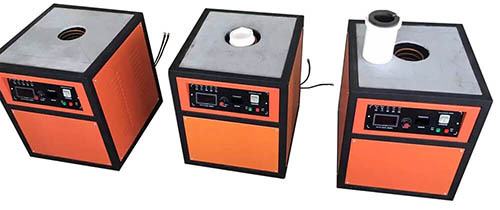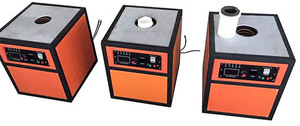Crafting Your Own Melting Furnace: A DIY Guide to Metal Casting at Home
Body
Whether you're interested in casting aluminium, brass, or other metals, building a DIY melting furnace is a rewarding venture. In this guide, we'll walk you through the essential steps to construct a simple yet effective melting furnace for your metal casting endeavours.
Materials Needed
Steel Container
Choose a steel container that can withstand high temperatures. A steel drum or an old propane tank cut in half can work well. Ensure the container has no plastic parts that could release harmful fumes when heated.
Insulating Material
Obtain refractory materials for insulation. Common choices include firebricks, refractory cement, or a mix of perlite and plaster. These materials will help retain heat and create a high-temperature environment inside the furnace.
Propane Torch
Use a propane torch as the heat source. You can find these at hardware stores and they typically attach to standard propane tanks. Consider using a torch with a higher BTU (British Thermal Unit) rating for more efficient melting.
Metal Pipe or Tube
Use a metal pipe or tube as a tuyere to deliver the propane into the furnace. This will create a controlled and directed flame for optimal heating.
Lid or Cover
Have a lid or cover for the furnace to trap heat and improve efficiency. This can be a piece of steel or a castable refractory lid.
Tongs and Safety Gear
Invest in sturdy metal tongs to handle hot crucibles and molten metal. Additionally, wear appropriate safety gear, including heat-resistant gloves and protective eyewear.
Step-by-Step Construction
Prepare the Container
Cut a hole near the bottom of the steel container to insert the tuyere. This is where the propane torch flame will enter the furnace.
Install the Tuyere
Insert the metal pipe or tube through the hole, ensuring a secure fit. This will be the channel through which the propane is delivered into the furnace. Seal any gaps around the tuyere to prevent heat loss.
Create the Crucible Support
Place a layer of refractory material at the bottom of the container to support the crucible. This can be a layer of firebricks or a refractory cement base.
Insulate the Furnace
Line the interior of the container with insulating materials such as firebricks, refractory cement, or a mix of perlite and plaster. Build up the insulation to ensure the furnace retains heat effectively.
Attach the Propane Torch
Connect the propane torch to the tuyere. Ensure it is securely attached and that the flame is directed into the furnace chamber.
Create a Lid
Craft or find a suitable lid to cover the furnace. This will trap heat and improve the efficiency of the melting process.
Operating the Melting Furnace
Place Metal in Crucible
Load the metal you want to melt into a heat-resistant crucible. Ensure the crucible is positioned securely on the refractory base.
Ignite the Propane Torch
Turn on the propane torch and ignite the flame. Adjust the flame to achieve the desired temperature for melting your chosen metal.
Monitor and Control
Keep a close eye on the melting process. Adjust the propane flow and monitor the temperature to ensure the metal reaches the desired molten state.
Pouring and Casting
Once the metal is molten, use tongs to carefully pour it into moulds for casting. Exercise caution to avoid burns and ensure a safe pouring environment.
Safety Considerations
Always operate the furnace in a well-ventilated area to disperse any fumes.
Wear appropriate safety gear, including heat-resistant gloves and protective eyewear.
Keep a fire extinguisher nearby in case of emergencies.
Exercise caution when handling hot crucibles and molten metal.
Conclusion
Constructing a melting furnace at home provides a gateway to the fascinating world of metal casting.
By following these steps and adhering to safety precautions, you can create a simple yet effective melting furnace that opens up a realm of possibilities for crafting unique metal creations.
Embrace the art of metalworking, experiment with different alloys, and watch as your DIY melting furnace becomes a gateway to your creative metal-casting endeavours.













Comments